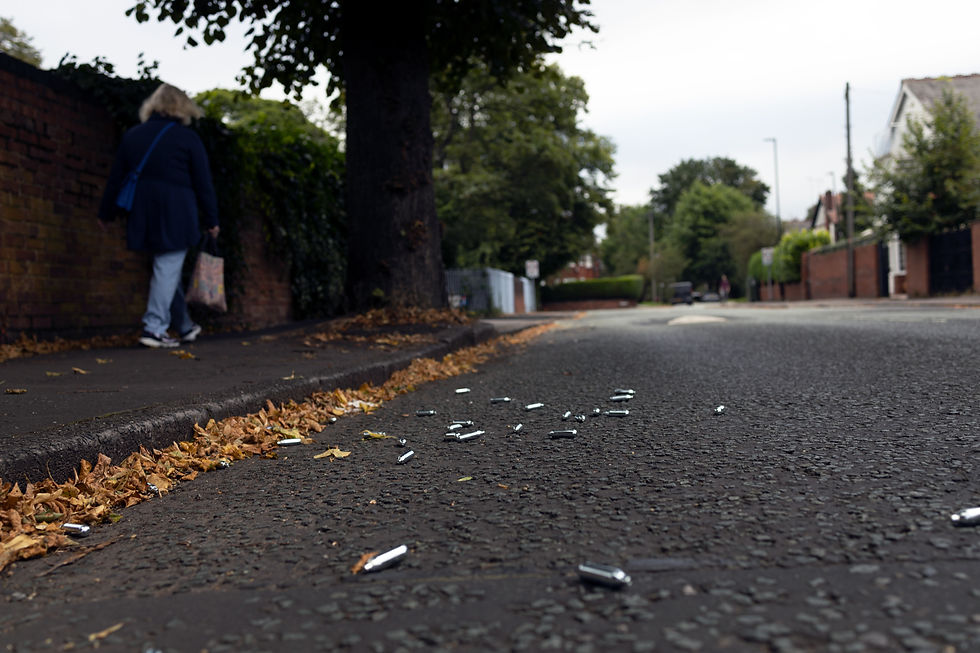Justice reform post-COVID-19
- Callyane Desroches
- Apr 21, 2020
- 4 min read
Updated: Apr 23, 2025
Insights Perspective
Callyane Desroches, Head of Policy and Strategy
Tuesday 21 April 2020

Crest is undertaking new research to understand how COVID-19 is impacting the criminal justice system. We want to understand what long term reforms this crisis may drive forward or, conversely, hinder. This project is funded by the Hadley Trust.
The rule of law, underpinned by a healthy and functioning justice system is a key pillar of our society, even during a public emergency such as the COVID-19 pandemic.
Long before the COVID-19 outbreak, our justice system was already struggling, as our Swift and Certain criminal justice interim report showed. It was underperforming against virtually every measure: police charge rates were going down – decreasing by 47 per cent between 2014 and 2018 from 17 per cent to 9 per cent – against a backdrop of rising crime, court timeliness was getting lengthier with offence to completion timelines having increased by 23 per cent between 2010 and 2018, and reoffending rates were remaining stubbornly high with over a quarter of all offenders reoffending (January 2020).
Now a justice system which was already struggling, is having to adapt to continue to operate at an even more limited capacity. Crest is launching a new project to help the police, prosecutors, courts, prisons and probation understand what is happening due to COVID-19 and to learn the lessons for the future. Through new research and analysis, we will:
Quantify the short-term and long-term impact of COVID-19 on the justice system using modelling techniques and data analysis
Assess the response and performance of the justice system to the current crisis.
Discuss the implications of the crisis to inform what a post-COVID-19 justice system looks like.
We hope that this project will benefit agencies across the criminal justice system as they seek to manage and ultimately move beyond the COVID-19 crisis.
COVID-19 is forcing change, innovation and adaptation at every stage of the criminal justice system, and no doubt more will appear in time. At the front end, police capacity has been reduced due to officer and staff sickness and self-isolation, while enforcing the lockdown and responding to shifting crime patterns is placing new strains on forces. Additionally, running day-to-day operations while maintaining appropriate distance between officers and the public is a significant challenge. CPS charging guidelines have changed, as have the bail delays, which will impact on the police’s ability to follow through on some arrests and less severe incidents. We can expect long term consequences from this - not only on the rest of the criminal justice system, but also from the offending landscape which will have evolved in new circumstances.
The courts face huge challenges of their own. More than half of tribunals and premises have closed and there are currently no jury trials. The consequent delay to justice will have very real impacts on victims, defendants and witnesses. In the worst case scenario, the backlog of cases will set up to fail the entire courts system with insufficient courtroom, advocate and judicial capacity once the pandemic has ended. The rapid adoption of virtual proceedings through use of technology has provided some mitigation. The Lord Chief Justice, Lord Burnett, has described the unprecedented use of video conferencing as a ‘silver lining’.
However, while COVID-19 has forced much needed modernisation on the courts, wider use of digital technology raises as many questions as it answers. For instance, Penelope Gibbs has pointed out that victims may not feel properly seen or heard in virtual proceedings where they are even more hidden than usual.
Furthermore, there are questions around procedural fairness for defendants, who may not manage online interactions well. And finally, inviting members of the public into the courtroom is currently almost impossible – and though this may seem a minor issue, open justice is a critical element to fair justice. So which elements of the courts’ response to COVID-19 could or should be retained beyond the immediate crisis? Which are the basis for further reform? And which should be dispensed with?
At the back end of the system, probation, prisons and victim services all face challenges of their own with most face to face interaction being suspended. Probation officers struggle to maintain engagement with their service-users without face to face meetings. In fact, preference for virtual contact in the probation service was overturned in 2018 in favour of face to face contact, but the system is now forced to reconsider. Prisons face the alarming scenario of uncontrolled outbreaks of COVID-19 in their populations. In response, the government had planned to release 4,000 prisoners early but this is currently suspended following the erroneous release of six prisoners. Victim services are having to move all forms of support to telecommunication, which they were partially prepared to do, but which might have lasting impacts on people’s mental health. Will low-level offending be dealt with in a different way post COVID-19? Will we seek to lighten the loads on prisons and manage more offenders in the community? Which virtual practices should be kept or evolved?
In short, this public emergency is shining a light on the failings of the current criminal justice system as well as its innovations, and has forced some rapid changes. Does it offer the opportunity to develop new solutions and reform some archaic processes? That will depend on the COVID-19 exit strategy for the justice system as Robert Buckland, Secretary of State for Justice, has laid out. This project will explore both the changes and attempt to understand their lasting consequences.



